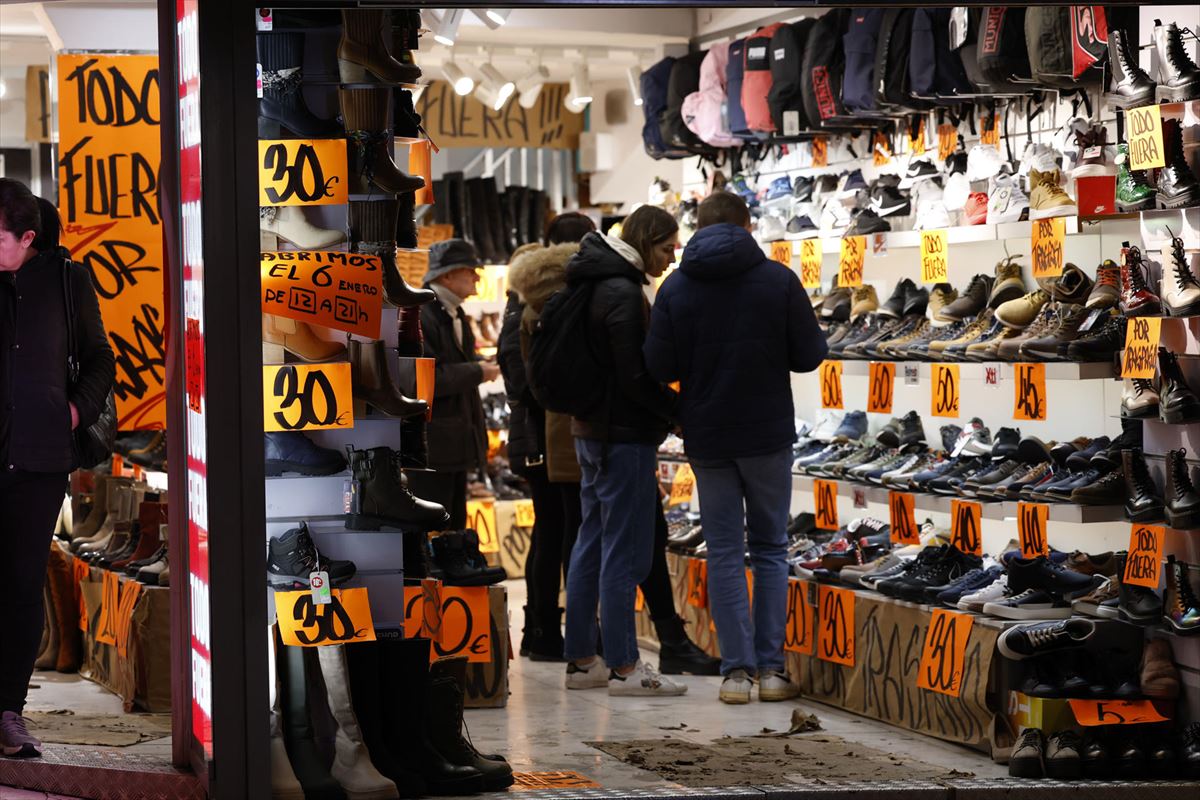Now that the long-awaited January sales begin, we have collected the main keys to the rights that the law grants to both the buyer and the seller, from Leire Alberdi, lawyer for the EKA consumer association.
After Christmas and Three Kings’ Day, another special period for businesses begins these days, that of The sales.
Although many online stores have already started sales and adapted their digital stores, in most physical stores the movement will begin this Monday.
Before we jump into the race, however, it is worth taking into account some recommendations. Leire Alberdilawyer for the consumer association EKA, has explained these recommendations in Euskadi Irratia, along with the main legal keys that regulate discounts and the rights that both the buying and selling parties have.
What are the Sales, legally?
“Sell, on certain days, at discounted prices, the products that a store sells at normal prices. We would call that period what The Sales are, and like most things, They are also regulated by law“, which establishes, among other things, that the duration of said period must be clearly and explicitly shown, as well as the rules with which it will operate during it.
Besides, to be able to say that a store is on sale, at least half of the products in that store they must have a discount. In Alberdi’s words, “there may be other reasons for the promotion, such as having to close the store, having to bring new products to change the window, etc. But we could not consider it as a sales period.”
What prices should be displayed?
They must appear two prices on product labels. The lowest price it has been in the previous 30 dayswhich we will consider normal price, and the reduction that this price has suffered and the new price. “It’s always a good idea to see what the price of that product was the previous month.” From there comes the basic recommendation: Foresight. “It is always advisable to make a list of the things we need before going shopping,” emphasizes Alberdi.

Can the business prevent us from paying by card?
“Yes, by law the merchant is not obliged to charge the card. In addition, you can set minimum spending limits, a minimum of €10 or whatever,” he emphasized. That is up to each seller to decide. “It is true that nowadays it is completely normal to be able to pay by card,” Alberdi points out, but, In this case, since the law is on the side of the merchant, “it is advisable ask before buying whether it is possible to pay by card or not.
Whether paying in cash or by card, the client will always have right to receive a ticket or invoice.
What guarantees do the products we buy have?
By law, the new products They have a guarantee of three yearsand second-hand guarantees cannot be less than one year.
Furthermore, as Alberdi highlights, “it is absolutely prohibited to sell damaged products at a discount; that is, at a lower price because they are damaged.” Make it clear that the product must be in perfect condition, with all its characteristics.
How to make returns in physical and online stores?
In ours online shoppinglegally we will have a period of 14 days natural to be able to return any product, without having to specify the reason for the return. As long as we return the product in the condition it was in when we purchased it, the establishment must refund our money.
In the physical stores the rules are different. In fact, in the physical store, the retailer is not required to accept the return“only when the product has a factory defect,” as Alberdi explains.
The merchant sets the rules: if he accepts the return, if he does not accept it or if he issues a voucher with the value of the product. In any case, Alberdi reminds that “if a physical store has accepted returns throughout the year and does not accept them during sales, it must indicate so.”
Source: Eitb
I’m Tifany Hawkins, a professional journalist with years of experience in news reporting. I currently work for a prominent news website and write articles for 24NewsReporters as an author. My primary focus is on economy-related stories, though I am also experienced in several other areas of journalism.
